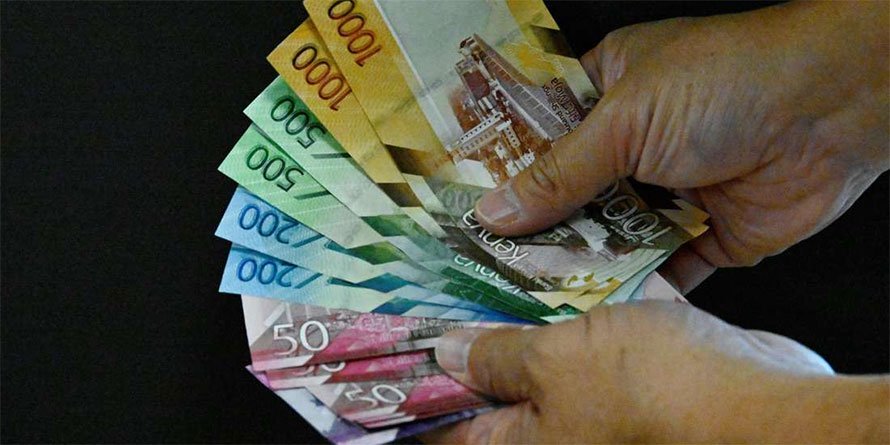The shilling slumped to a record low against the dollar on Thursday on stronger demand for the greenback, pointing to a rise in the cost of importing goods into the country in the short term. FILE PHOTO | NMG The shilling slumped to a record low against the dollar on Thursday on stronger demand for the greenback, pointing to a rise in the cost of importing goods into the country in the short term.
Commercial banks quoted the shilling at 107.40 to the dollar, an all-time-low, after four successive days of weakening.
Demand for the dollar has particularly been cranked up by the manufacturing and energy sectors as traders seek to cash in on improved business activity following last week’s lifting of restrictions on movement in and out of the Nairobi Metropolitan Area, and Mombasa and Mandera counties.
Traders expect the gradual reopening of the economy to boost demand for commodities such as fuel and raw materials for many manufacturing firms.
The pressure on the shilling is also compounded by the disruption of key foreign exchange earners such as tourism, diaspora remittances, tea and horticulture since mid-March when Kenya reported the first Covid-19 case.
The weakening local unit raises the prospects of higher consumer bills for Kenya’s import-dependent economy. The country largely depends on imports for its consumer and capital goods, especially fuel and industrial raw materials.
“The weakening of the shilling comes with short-term pains of pushing up prices of imported items but the long-term benefits of having a market-driven exchange rate is good for exports” Ken Gichinga, chief economist at Mentoria Economics, said.
The latest weakening of the shilling is likely to trigger fresh intervention by the Central Bank of Kenya (CBK), which has stayed active in the currency market since the beginning of the year to help deal with volatility caused by the effects of the Covid-19 pandemic.
The regulator normally comes into the market to smooth out volatility either through sale or purchase of hard currency depending on the direction of the exchange rate movement.
The effects of the weakening shilling are likely to worsen the pain at the pump at a time the energy regulator has already raised fuel by the highest margin in 13 years as petroleum levy rose from Sh0.40 to Sh5.40.
A weak shilling could also deny consumers cheaper electricity despite the reduced used of the expensive thermal power in the country’s energy mix in favour of green energy.The Energy and […]
